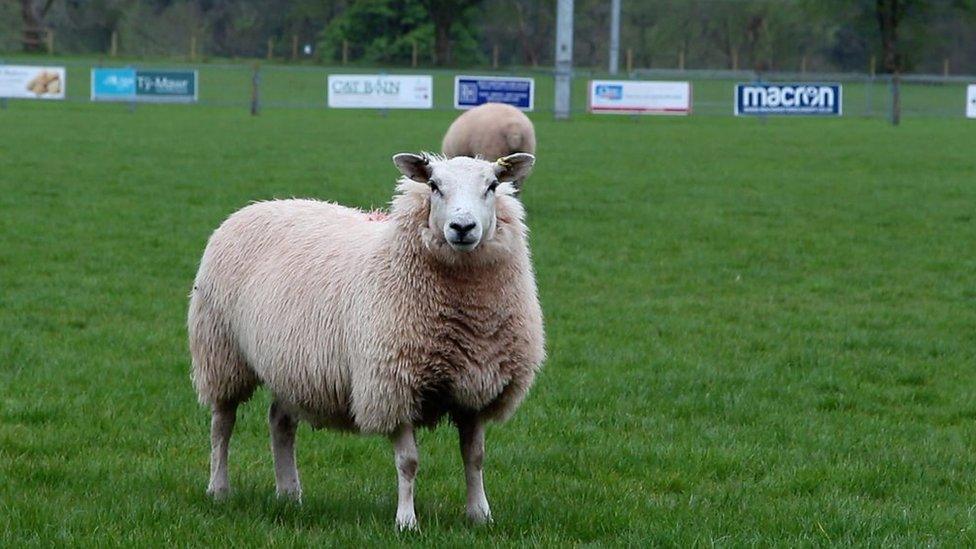Coronavirus: What the world tourism crisis means for Welsh wool
- Published
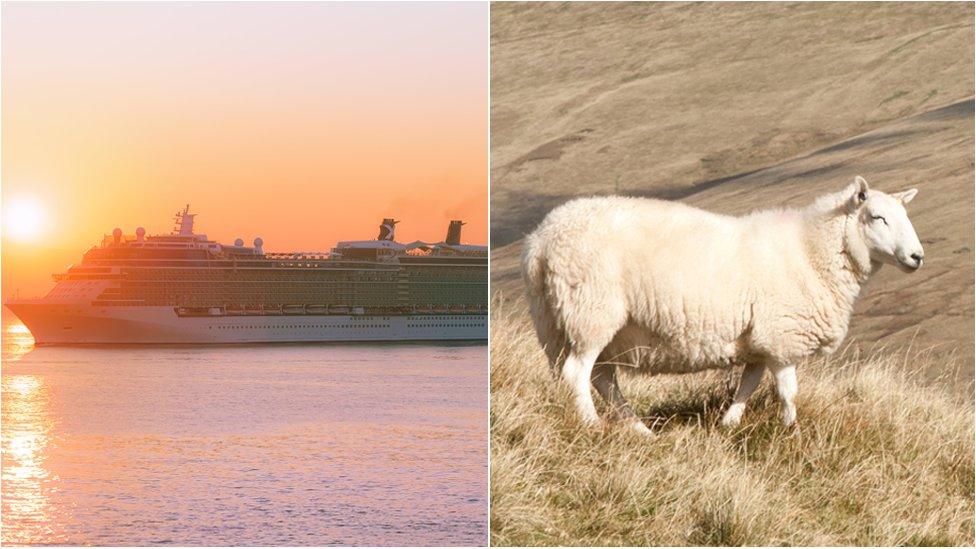
The wool of hill sheep is well-suited to carpets, which are normally in much higher demand on cruise ships and in big hotels
The global coronavirus pandemic has contributed to a "disastrous" fall in demand for the fleeces of mountain sheep, according to British Wool.
Thanks to a hill-dwelling lifestyle, Welsh sheep have a coarser fleece, which tends to be used in carpets.
The closure of large hotels and cruise liners - which routinely invest in new carpets - has hit producers, said John Davies, a British Wool board member.
"Everything came to a stop in February and it's caused real issues," he said.
Farming union NFU Cymru warned the price paid for fleeces had collapsed and called for its use to be prioritised in public buildings and government-backed insulation schemes.
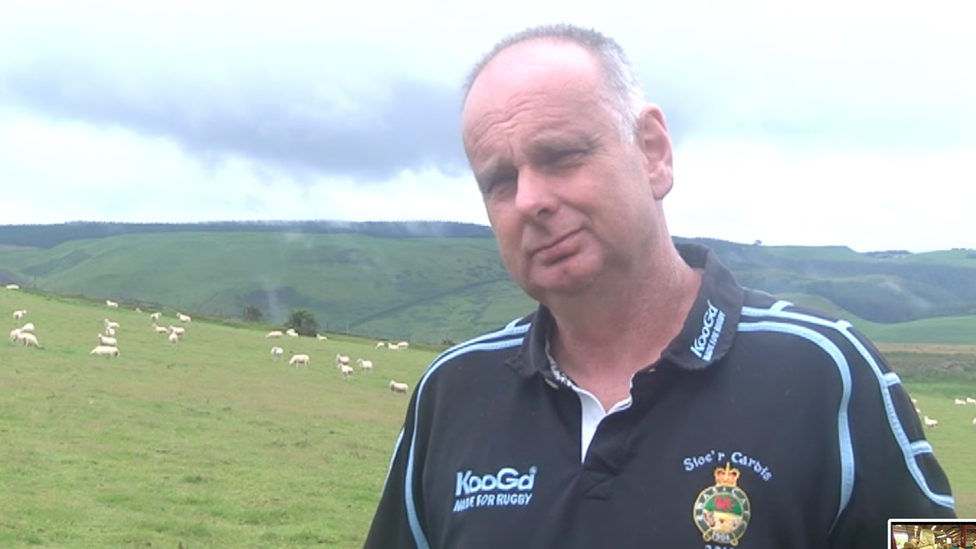
This year Wyn Evans has received £60 for the wool from around 320 sheep
The union has now written to the housing minister asking for support measures to be put in place.
The situation has also sparked an online petition addressed to each of the UK nation's governments demanding the use of British Wool products in public projects.
Mr Davies, who is the Welsh southern regional board member for British Wool - the body owned by UK sheep farmers to promote wool - said the situation was "disastrous".
"We sell around 25% of what we produce to China and that market was obviously closed off, and then everywhere shut down here too."
Wyn Evans, NFU Cymru livestock board chair, said: "The crisis in wool markets means the price that farmers receive for their wool is only a fraction of their shearing costs.
"I've had a cheque this year for around £60 - that's for around 320 sheep - it's nothing."
But wool was a "great product and ticks all those environmental boxes", he claimed.
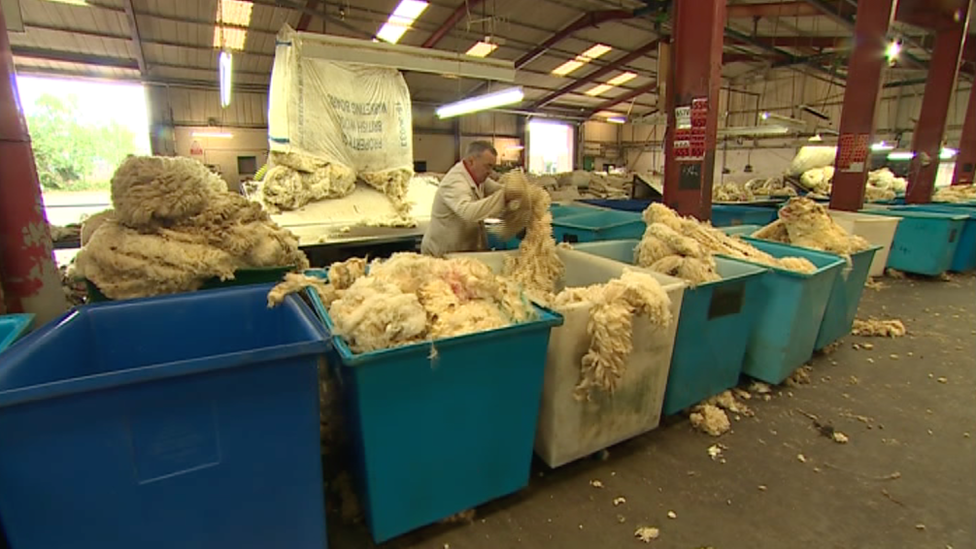
Producers want the UK's governments to support the use of wool as insulation
Efforts to better insulate homes across the UK are being driven by the need to reduce energy use and cut greenhouse gas emissions.
Nigel Gervis, director of Brecon-based Ty-Mawr Lime, specialists in wool insulation, said "modern alternatives... don't reflect the true environmental cost of what they are" and wool could have a "huge part to play in insulation - whether that's retrofit or new build".
A Welsh Government spokesperson said British Wool's decision not to make advance payments to farmers in 2020 reflected the difficulty currently facing the sector.
"We continue to work with the farming industry and stakeholders to help mitigate the impacts of Covid-19 and support their long term profitability and resilience," they said.
"As wool is already an established insulation measure, provided it complies with building regulations - we would encourage British Wool to act quickly to develop this market further."
- Published7 July 2020
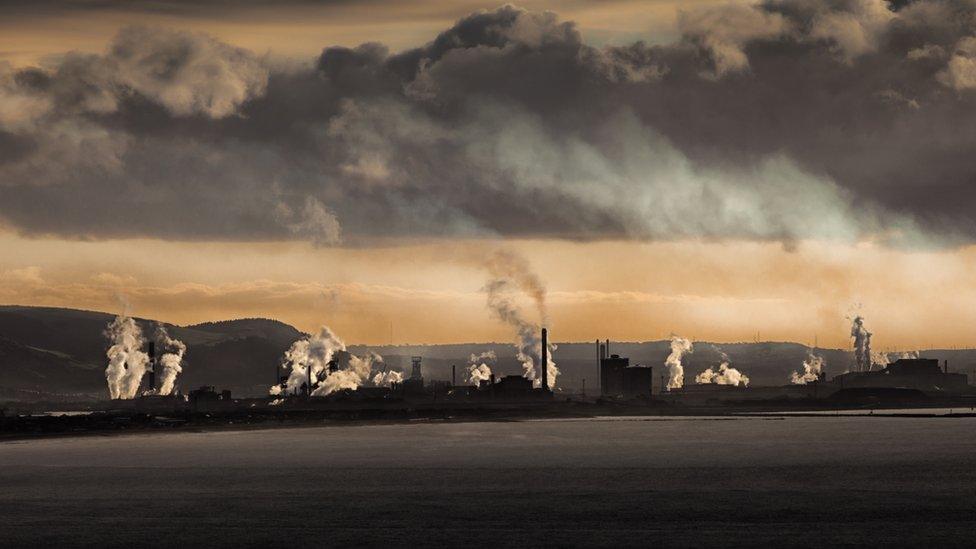
- Published20 September 2019
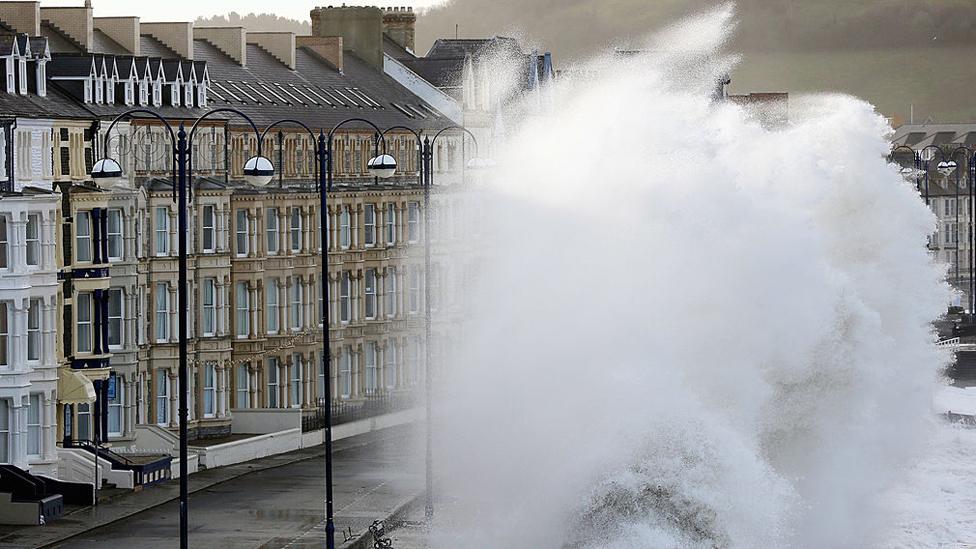
- Published6 May 2020
